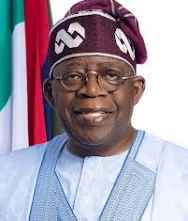Taiwo Ogunniyi
As President Bola Ahmed Tinubu enters the second half of his four-year tenure, Nigerians are sharply divided over his administration’s reforms. While some see a bold attempt to reposition the nation, others say the cost of those efforts is simply too much to bear.
From the early days of his presidency, Tinubu made it clear he would not follow the status quo. His administration wasted no time scrapping the long-standing petrol subsidy and merging the multiple exchange rates—a move that won him praise from international financial circles. But for the average Nigerian, those decisions triggered a wave of hardship that has yet to ease.
“The past two years have brought unprecedented suffering,” said Ifeoluwa Adeola, a trader in Lagos. “Food, transportation, and basic services are now out of reach for ordinary people. The hardship is real, and the government must act fast to cushion the blow.”
The impact of the reforms has been particularly severe on household economies. With inflation nearing 30 percent and the naira trading as high as N1,800 to the dollar, many families are struggling to survive. The much-talked-about N70,000 minimum wage is still a promise on paper for most workers across several states.
Despite this, some Nigerians are urging patience. Reverend Felix Ajide, a clergyman and journalist in Ilorin, believes the reforms, though painful, are beginning to show signs of effectiveness.
“We’ve seen positive signs—companies returning to profitability, student loans disbursed to nearly 500,000 beneficiaries, and relative calm in the university system,” Ajide noted. “But the government must avoid distractions like early politicking and focus more on power, health, and infrastructure.”
This call for focus is echoed by Adeleye Samuel Olalekan, a public affairs analyst, who described the past two years as “painful but necessary.”
“The government has exited IMF debts and improved federal allocations to states. These are foundational steps, even if the benefits are not yet visible to everyone,” he said.
Not everyone agrees. Pastor Osahon Michael Onaiwu, who leads a leadership-focused NGO, described the Tinubu era so far as “a season of terror” for everyday Nigerians.
“Hyperinflation, insecurity, and creeping authoritarianism are pushing us dangerously close to a one-party state,” he said, though he acknowledged that initiatives like local government autonomy and efforts to end oil sector monopolies were steps in the right direction—if backed by action.
Development analyst Oluwatoyin Olaniyi gave Tinubu a 70 percent performance score, arguing that his administration is trying to clean up a legacy of poor governance.
“Frameworks for long-term growth are being laid. It’s slow and painful, but it’s better than doing nothing,” she said.
That view didn’t sit well with Ogunniyi Odunayo, another analyst. “What gains are we talking about when families can’t afford food, petrol is beyond reach, and insecurity is still widespread?” he asked.
Biodun Esan took a broader economic perspective. “Tinubu inherited a broken economy. Removing the fuel subsidy saved over N4 trillion annually. Foreign reserves are now close to $34 billion,” he explained, also pointing to the reopening of the Port Harcourt refinery and introduction of gas-powered vehicles as moves toward economic independence.
But for some observers, actions like expanding the federal cabinet undermine the administration’s message of reform. Political analyst John Peter said the contradiction sends the wrong signals.
“You can’t preach cost-cutting and then build the largest cabinet since 1999. It raises questions about sincerity,” Peter said. He also highlighted concerns over insecurity in parts of the North Central and the emergency declaration in Rivers State, calling for “less drama and more governance.”
From Kwara State, Omo’ba Yemi Adurotoye of the Association of Local Governments of Nigeria (ALGON) gave a more measured view.
“The government started on a tough note, but some policies are taking shape,” he said, citing the student loan scheme (NELFUND), power sector support to tertiary institutions, and quiet reforms at the local government level.
“These are the kind of efforts that can touch lives if properly scaled and implemented,” he added.
Linus Imodiboh, a public affairs analyst, believes the nation is at a turning point. “We’re seeing attempts to break with the past. Now what we need is more transparency, genuine empathy, and heavy investment in areas like health, education, and infrastructure.”
As President Tinubu marks two years in office, Nigerians are watching closely. The next two years will be crucial in determining whether the sacrifices of today will lead to the progress so many have been promised—or whether the pain will simply become the new normal.



Leave a Reply